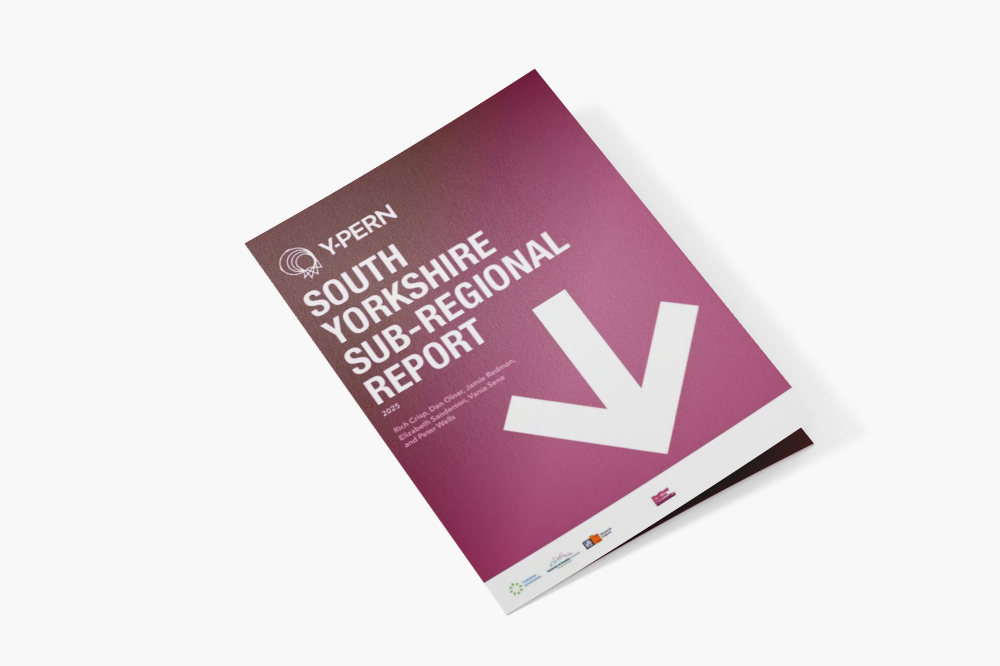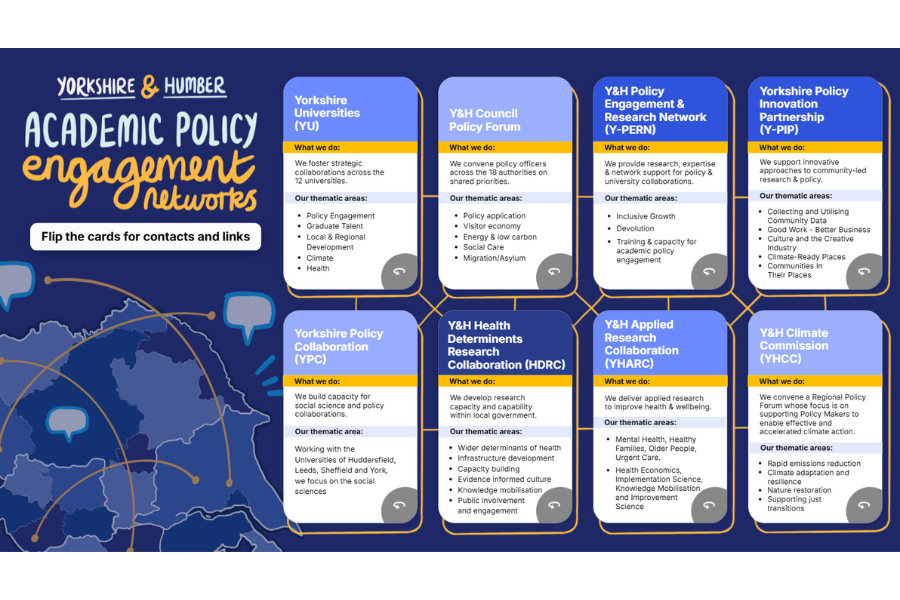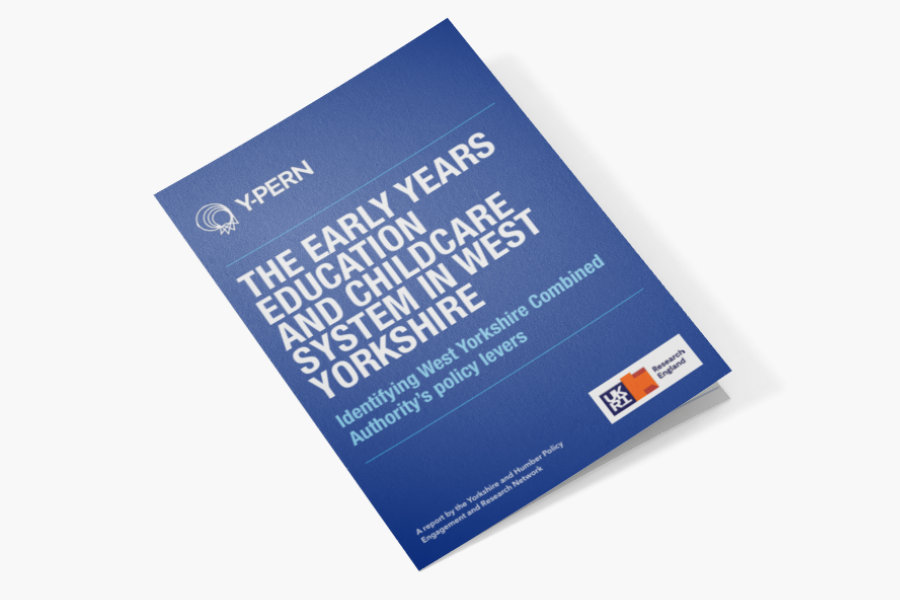Y-PERN and West Yorkshire Combined Authority present a report on the early years and childcare system in West Yorkshire. Written by Y-PERN Policy Fellow Dr Tom Haines-Doran and a research team comprising of Karen Arzate Quintanilla, Dr Lilith Brouwers, Dr Jo Burgess, Dr Aimee Code, Dr Amy Creaser, Dr Erin Dysart, Dr Jack Simpson and Dr Claire Smithson.
The West Yorkshire Local Growth Plan, has identified early years education and high-quality childcare provision as key enabling policy areas for an inclusive economy, performing a dual role for families:
1. High-quality early years education can transform the life chances of children, reducing entrenched inequalities at the earliest opportunity.
2. Affordable and available childcare enables greater parental and carer participation in the labour market, especially for women.
The Yorkshire and Humber Policy Engagement and Research Network (Y-PERN) has led new research, bringing together national and regional evidence and taking a systems mapping approach for the West Yorkshire Early Years Education and Childcare sector.
The research found that the Early Years Education and Childcare sector in West Yorkshire is led by providers, their workforce and Local Authorities that are exceptionally dedicated to the education and care of children and their families.
However, the research also found that providers and key stakeholders face considerable challenges in a very complex system.
Affordability for parents remains an issue despite increasing funding entitlements, as does navigating the entitlements, financial support and local availability of places.
Current funding entitlement for childcare disproportionately benefits higher earning families. Families on the lowest incomes are seeing virtually no direct benefit from increased entitlements because entitlements focus on families with working parents and some providers target wealthier areas for expansion
Workforce challenges reflect national trends and include:
- Low recruitment and retention
- Poor pay
- Lack of progression opportunities
- Lack of training and development opportunities (e.g. around special educational needs and disabilities (SEND) and caring for very young children)
- A highly gendered workforce and a lack of diversity
The government is seeking to ‘break down barriers to opportunity’ with a focus on the Early Years Education and Childcare sector and the continued roll out of childcare entitlements for working parents on a national level.
The Y-PERN research report offers new insights into how West Yorkshire Combined Authority can best support the revitalisation of the Early Years Education and Childcare sector, alongside Local Authorities and providers.
Through a ‘systems mapping’ exercise, undertaken in conjunction with Early Years Education and Childcare academic experts, providers and West Yorkshire local authorities, Y-PERN researchers identify three regional ‘policy levers’ that the Combined Authority could engage to improve Early Years Education and Childcare quality and accessibility:
- Political leadership and advocacy. Many of the challenges facing the Early Years Education and Childcare sector result from under-funding, despite recent increases in ‘entitlements’. The Combined Authority could champion the sector on a national level, while convening providers and local authorities on a regional scale to help overcome fragmentation and unevenness in the system. It could also consider whether targets based on outcomes may be appropriate, to help direct policy.
- Information sharing and systemic analysis. Making good policy and making choices as parents relies on good data, but this is unavailable in many key areas, especially at a West Yorkshire scale. The Combined Authority could work with the sector, local authorities and academics to identify where greater data availability could add value to policy, practice and parental choice.
- Creation of a West Yorkshire Early Years Education and Childcare workforce strategy. The sector relies on a dedicated workforce, which is too often under-paid, under-prepared and under-appreciated, resulting in a recruitment and retention crisis. The Combined Authority could help to remedy this through a regional workforce strategy that improves both recruitment levels and training provision. Among other priorities, recruitment should aim to increase male representation from low levels. Training should target key challenges, for example around SEND provision and caring for very young children, to improve outcomes and help retain staff.
As an immediate and direct response to the third identified regional lever, the Combined Authority has commissioned Bradford Birth to 19 Institute for the Early Years, to develop an evidence-based, practical workforce plan rooted in the region. The plan will identify practical, implementable steps to address key challenges around recruitment and retention, training, development and progression as well as diversity of the workforce.
Tracy Brabin, Mayor of West Yorkshire, said:
“I welcome this first of its kind report from the Yorkshire and Humber Policy Engagement and Research Network, and we are already taking action to respond to the recommendations.
“The evidence is clear – our early years sector in West Yorkshire and across the country is facing significant challenges, and we must take action now to address the concerns of a workforce that is undervalued and underpaid, and of families who deserve consistent and high quality childcare services.
“Faced with unprecedented funding pressures, our councils cannot be asked to meet this challenge alone. Devolution is the green shoot of hope that can empower our region to invest in the early years workforce we need, to set our children on a path to success and sow the seeds of a stronger, brighter West Yorkshire.
“We have commissioned a regional workforce plan for early years education that will enable us to tackle the urgent challenges around recruitment and retention head-on, and we are flexing our adult skills funding to deliver training, development and progression opportunities within the sector.
“But we have so much further to go, and we will continue to work alongside the sector, our councils and the government to make sure that our great region has the powers and funding it needs to build an Early Years Education and Childcare system that works for both parents and practitioners.”
Christian Bunting, Executive Director at Bradford Birth to 19, said:
“We are really excited to be doing this work with the Combined Authority. As a team of Early Years professionals, who are passionate about improving the workforce and in turn improving outcomes for children, we have genuine interest in this work and the drive to ensure that the positive impacts of this project are maximised.”Birth to 19 Institute for the Early Years is the training, sector improvement, research and policy arm of St Edmund’s Nursery School, a maintained Nursery School in Bradford judged Outstanding by Ofsted. The nationally recognised organisation improves outcomes and increases social mobility for children through school and setting improvement, training and qualifications, guidance, and cutting-edge educational initiatives.
The Y-PERN report has also already informed strategic commissioning decisions of the Combined Authority around Skills Bootcamps. Over 200 places to train Early Years Educators are being commissioned, and the training includes a focus on equipping practitioners with knowledge of SEND, speech and language and how to work with the youngest children, following the findings in the report. Three organisations have commenced delivery, including Kirklees Council which has already seen 80% of participants secure interviews in the sector.
You can read the report here: The Early Years Education and Childcare system in West Yorkshire






